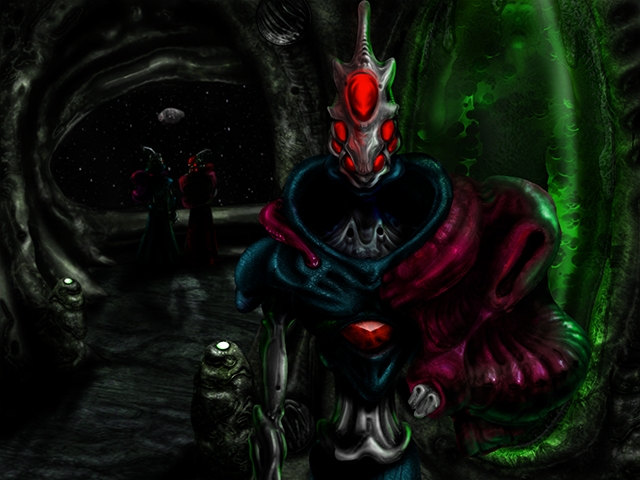So one of the great things about working for a software company is that sometimes we can get our staff to put together something rather geeky and fun...
Feel free to share this out with your friends, and we hope you enjoy it.
Our original article: http://www.transparent.com/language-news/2012/01/06/arrow-in-the-knee-translated/. This link will likely be updated with more languages as they come in from our blog staff.
-----------------
One of the latest memes on the internet sprouted from one of the most popular video game releases of 2011; The Elder Scrolls V: Skyrim. A casual comment spoken by various town guards is, " I used to be an adventurer like you, but then I took an arrow in the knee." It comes up frequently enough, and is quirky enough, that it caught on as a meme. In the past two months, endless spin-offs and remixes of the phrase have surfaced.
Earlier this week, a blogger on Tech in Asia posted an article about the use of the phrase by Chinese speakers on the internet, and how that culture has adapted the meme to their own current events. As a language learning company, our ears perked up at this concept. Maybe the complaint that the meme is being overused would disappear if it were… in German? Russian?
When you're learning a language, having fun with it is a big step in the right direction. And so here we present some additional translations from our language team for when you take an arrow in the knee. We've included both the original sentence, and a handy fill in the blank version for whatever it isyouused to do.
1. I used to be _______________ like you, but then I took an arrow in the knee.
2. The original: "I used to be an adventurer like you, but then I took an arrow in the knee."
The first one is a bit difficult because "J'étais ________" is only correct if the next word describes the actual person. (Ex: I was an adventurer or I was short or I was happy.) However, if you want to say "I used to play" (so, in this case describing a habitual past action), the verb must actually be conjugated in the imperfect. Ex: Je jouais =I used to play. Here is a direct translation:
1. J'étais ________comme vous ,mais puis j'ai pris une flèche au genou.
2. J'étais un aventurier, mais puis j'ai pris une flèche au genou.
Here are two examples:
I used to bake my own pies, but then I took an arrow in the knee.
Je faisais mes propres tartes mais, puis j'ai pris une flèche au genou.
Or, you could express it like this:
Je faisais moi-même des tartes mais, puis j'ai pris une flèche au genou
(In either case, gender or speaker doesn't matter because it's the action.)
I used to be a language learner like you, but then I took an arrow to the knee.
J'étais étudiant de langues mais, puis j'ai pris une flèche au genou
In this case, gender does matter because it's describing the person. In the example, it's masculine. If feminine, it would look like this: J'étais étudiante
And, if you want to really designate that the "used to" was in the past, one might add the word "autre fois" (In the past).
1. Eu era ______ igual a você, mas daí eu levei uma flechada no joelho.
2. Eu era aventureiro igual a você, mas daí eu levei uma flechada no joelho.
1. Yo era ______________ como tú, pero me hirieron con una flecha en la rodilla.
2. Yo era un aventurero como tú, pero me hirieron con una flecha en la rodilla.
1. Jeg var engang _________ som du, men så fik jeg en pil i knæet.
2. Jeg var engang en eventyrer som du, men så fik jeg en pil i knæet.
The translations are not literal, but adapted to a wording that sounds more Danish. (Jeg plejede at…, I used to…, is more used with active verbs, like "I used to swim each Friday".)
This meme is doing fairly well on the Russian Internet. The full sentence is:
for a male:Я тоже раньше был искателем приключений, как и ты, но потом получил стрелу в колено.
for a female:Я тоже раньше была искательницей приключений, как и ты, но потом получила стрелу в колено.
The translation of the phrase "I used to be___________ like you, but then I took an arrow in the knee" is "Я тоже был/была _________________ как и ты, но потом получил/получила стрелу в колено". (I provided both male/female versions for the verbs)
The Russian meme also has such versions asЯ тоже хотел/хотела…. (I also wanted), including this hilarious one -http://demotivation.me/vfw2rbpab5c7pic.html(I wanted to be a liberal president, but then I took an arrow in the knee)
1. Jag brukade vara……….som du, men sen blev jag skjuten i knäet. (but got shot in the knee)
2. Jag brukade vara äventyrlig som du, men sen blev jag skjuten i knäet.
1. Bhínn i mo ______________ mar thusa ach ansin bhuail saighead mé sa ghlúin.
2. (adventurer: eachtránaí)Bhínn i m'eachtránaí mar thusa ach ansin bhuail saighead mé sa ghlúin
There's a contraction now, "i'm" instead of "i mo," because of the two vowels. There are actually about half a dozen ways to say this, but I think this pattern is the most straightforward.
1. Früher war ich ______________________ wie du, aber dann schoss ich einen Pfeil ins Knie.
2. Früher war ich ein Abenteurer wie du, aber dann schoss ich einen Pfeil ins Knie.
Note: In German we say "einen Pfeil schießen" (to shoot an arrow). This, again, expresses who is the agent/doer of the action, which is not the case in this situation.
So, when the speaker 'shot himself in his knee' say "aber dann schoss ich mir einen Pfeil ins Knie". When someone else 'shot an arrow in the speaker's knee', say: "aber dann schoss man mir einen Pfeil ins Knie" (like above). When you do not want to stress whom the speaker 'shot in the knee', say: "aber dann schoss ich einen Pfeil ins Knie" (also the same like above).
1. Byłem (male)/Byłam (female) __________ jak ty, ale potem dostałem(m)/dostałam(f)strzałkę w kolano.
2. Byłem (male)/Byłam (female)poszukiwaczem przygód,ale potem ostałem(m)/dostałam(f)strzałkę w kolano.
Now you can tell all your Danish friends about your extreme archery misfortunes. We'll add new translations as we get them. Happy language learning!










Log in to comment